Will China be emboldened by Russia's invasion of Ukraine?
President Vladimir Putin had set the stage for Russia's "special military operation" in Ukraine by couching the country's relations with Ukraine in ethnocentric terms. Would military action taken in the name of reuniting "one people" give a psychological boost to Beijing in terms of a possible armed reunification with Taiwan?
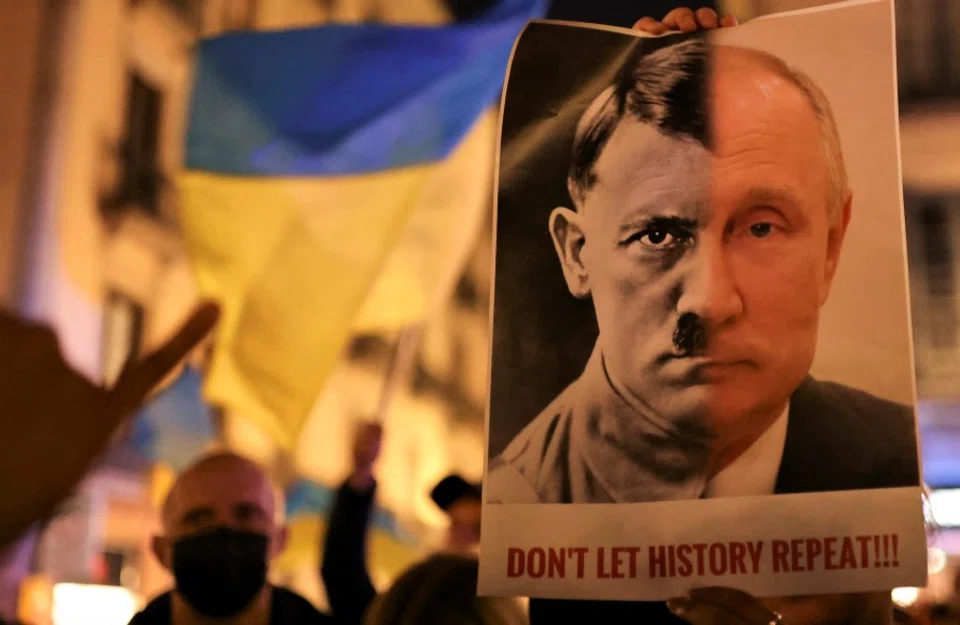
US military intelligence and warnings about imminent warfare in Ukraine were touted as bluffs and scares. Not this time. Despite Russia's earlier denials of plans to invade Ukraine, war broke out anyway. However, President Vladimir Putin gave China some "face" by moving in a few days after the end of the Beijing Winter Olympics.
After the gathering of Russian troops at the border with Ukraine and failed diplomatic mediation by the US and Europe, Putin announced a "special military operation" in Ukraine on 24 February, launching a land and air offensive.
Soon after, explosions went off in Ukraine's capital Kyiv, second largest city Kharkiv, and major city Odessa, as well as the Donetsk region in eastern Ukraine controlled by pro-Russian forces. Russia attacked with high-precision weapons, seeking to immobilise Ukraine's military facilities. Ukraine's foreign minister said Putin had launched an all-out invasion of Ukraine, and the media has estimated that hundreds of Ukrainian troops have died amid Russia's night-time air raids and missile attacks.
As the Ukraine situation escalated over the course of this week, a video clip of Putin playing the piano emerged on WeChat Moments, with the remark that this shows the soft side of the "tough guy president". It is common knowledge that Putin loves sports like judo, taekwondo, skiing, swimming and ice hockey, and has more than once been voted by the Russian public as the most handsome man in Russia. However, this is the first time that the world is seeing at close range the strength and intensity of Putin's ethnonationalism.
Culturally, he wants to make the Russian people whole again, and make up for the injustice that Russia has suffered for decades, including putting right the wrongs to do with territorial issues during the Soviet era.
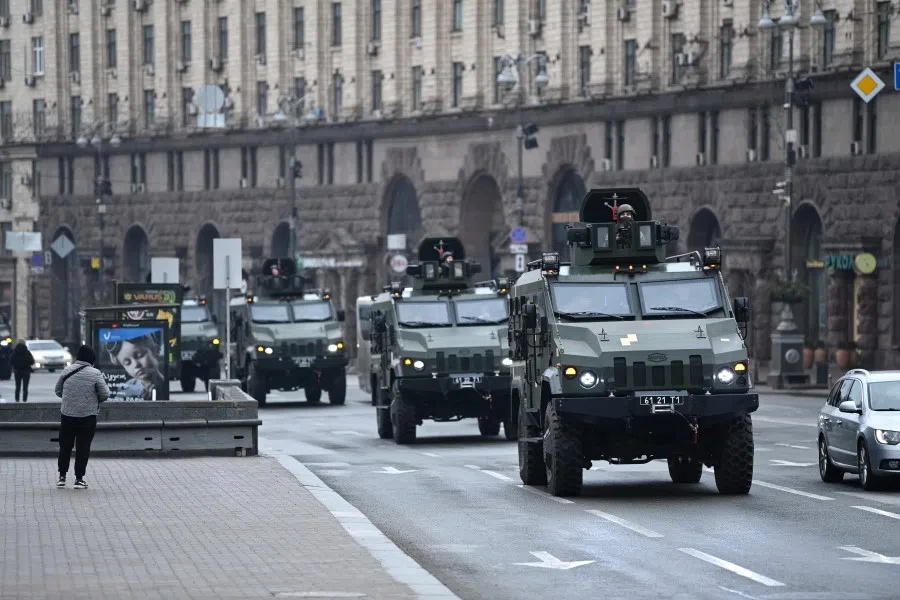
Righting previous wrongs
Putin has claimed that Russia has no plans to occupy Ukraine - his aim is the "demilitarisation and denazification of Ukraine". He has also accused the Ukrainian authorities of genocide in eastern Ukraine; in other words, he is dispensing heaven's justice. However, Western academics assess that Putin's ultimate aim is to rebuild the post-Cold War European security architecture.
Does this include "occupying" Ukraine? The answer depends on one's definition of "occupy". Looking at Putin's two long speeches and the current military action, politically he is seeking to overthrow the pro-West Ukrainian government and give support to a new pro-Russia government so as to eradicate the threat of NATO's eastward expansion. Culturally, he wants to make the Russian people whole again, and make up for the injustice that Russia has suffered for decades, including putting right the wrongs to do with territorial issues during the Soviet era.
In a harshly worded speech on 21 February, Putin criticised Lenin for the overly generous transfer of large swathes of territory belonging to Russia to often new and arbitrarily formed administrative units - the union republics - which were given the status and form of nation-states, and which the subsequent Soviet communist leadership gave the right to secede from the Soviet Union.
Putin's comments show that he does not think Ukraine is an independent political entity. He also noted that Ukraine has started decommunisation, adding threateningly: "You want decommunisation? Very well, this suits us just fine. But why stop halfway? We are ready to show what real decommunisation would mean for Ukraine."
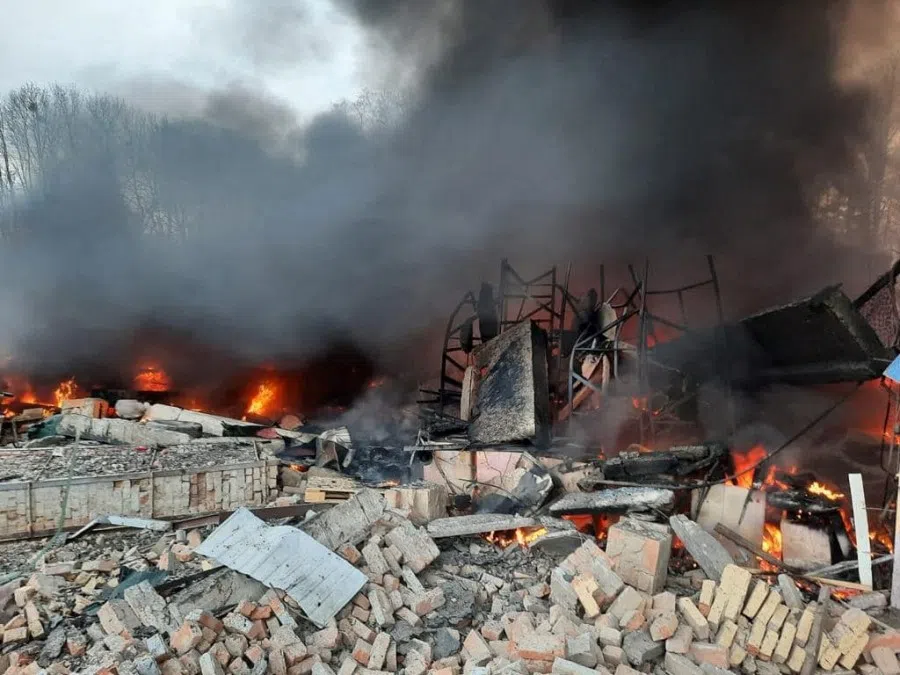
One people
Last July, Putin published a long essay titled "On the Historical Unity of Russians and Ukrainians". He began by emphasising that Russians and Ukrainians are "one people" and belong to "a single whole". He wrote: "...the wall that has emerged in recent years between Russia and Ukraine, between the parts of what is essentially the same historical and spiritual space, to my mind is our great common misfortune and tragedy."
Longtime observers of Russian politics say that when this long article expressing Putin's views on ethnicity and history was published last July, it was essentially a call to arms. Putin saw the decline in US deterrence and wanted to take advantage of it to avenge the disgrace suffered by Russia when the Soviet Union collapsed. With Putin's view of history, the Ukraine crisis does not look optimistic and is a battle that has just begun.
The US and the West have strongly condemned Putin's "special military operation". While neither the US nor NATO wants to escalate the situation into a head-on confrontation with Russia, harsh sanctions from the West would have to be meted out sooner or later. If the Russia-Ukraine crisis drags on, Russia will pay a clear price.
To achieve national unity, Putin took to the battlefield with little hesitation. What psychological effects will it have on nationalism in mainland China?
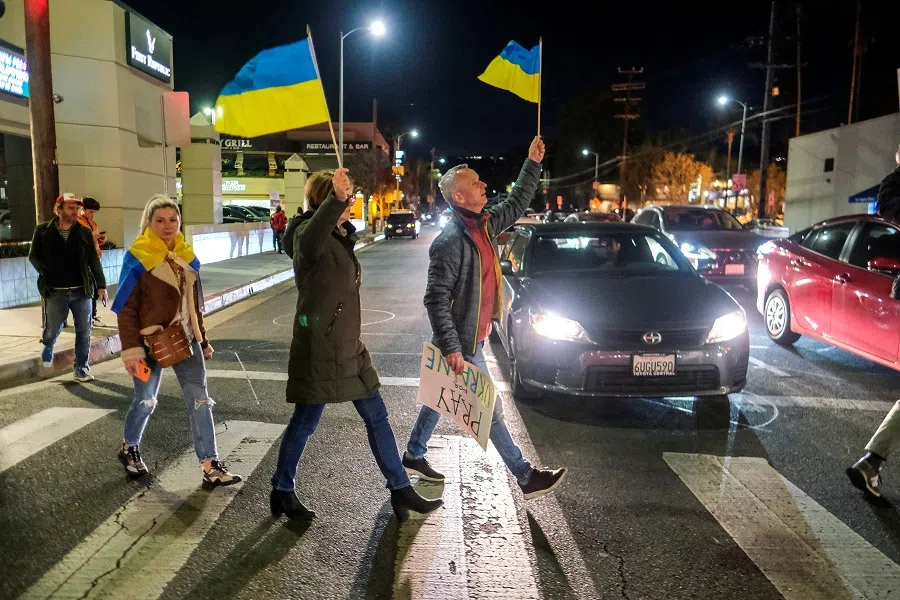
China may reap some benefits
On the other hand, China, which has just upgraded its quasi-alliance with Russia during the Beijing Winter Olympics, is in a delicate and complicated situation, but overall, the pros outweigh the cons.
Firstly, a hostile Russia-US relationship constitutes a check on the US and partially relieves China of US pressure. Secondly, China, which has always advocated the inviolability of territorial integrity, is unlikely to recognise the two Russian-backed breakaway regions in eastern Ukraine as independent republics. Besides, Ukraine is an important partner of China's Belt and Road Initiative, and Chinese state-owned enterprises have also invested heavily in Ukraine.
Furthermore, the unique psychological impact that Putin's military action against Ukraine might have on the Chinese should not be underestimated. To achieve national unity, Putin took to the battlefield with little hesitation. What psychological effects will it have on nationalism in mainland China?
If US-led Western countries punish Russia lightly, this could encourage domestic calls for military reunification in China, and Beijing may also gain a psychological boost in handling cross-strait issues.
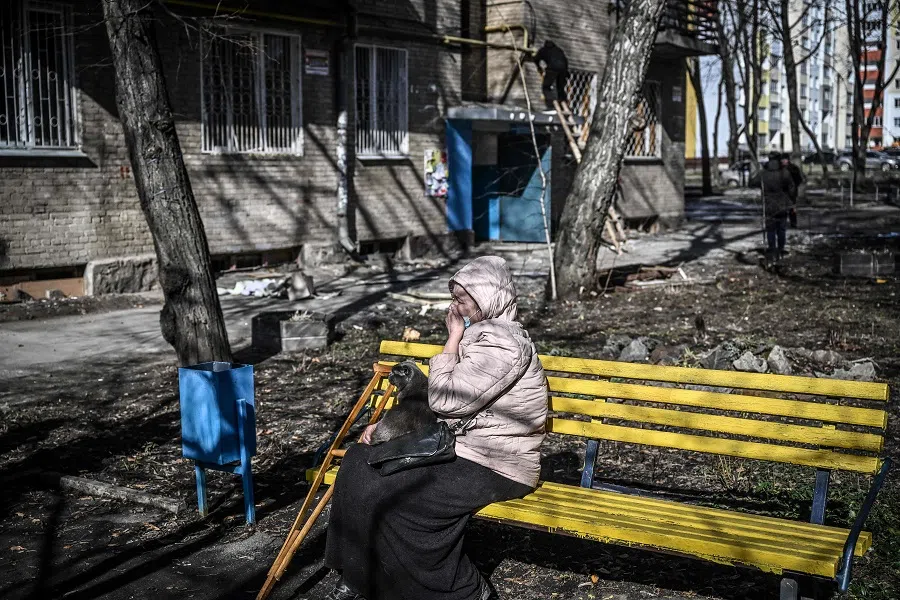
While cross-strait relations have worsened in recent years, Beijing's priority has always been to rise peacefully and to achieve reunification by peaceful means. Beijing does not want to be forced or talked into resolving cross-strait issues prematurely when the conditions are not ripe.
If US-led Western countries punish Russia lightly, this could encourage domestic calls for military reunification in China, and Beijing may also gain a psychological boost in handling cross-strait issues.
Thus, the extent to which Russia is held accountable for its actions by international society and the results it attains by its military action will be China's gauge of repercussions it might face in a future military reunification vis-à-vis Taiwan. I believe that the US will be mindful of this impact, and Taiwan must be watching closely as well.


![[Big read] When the Arctic opens, what happens to Singapore?](https://cassette.sphdigital.com.sg/image/thinkchina/da65edebca34645c711c55e83e9877109b3c53847ebb1305573974651df1d13a)


